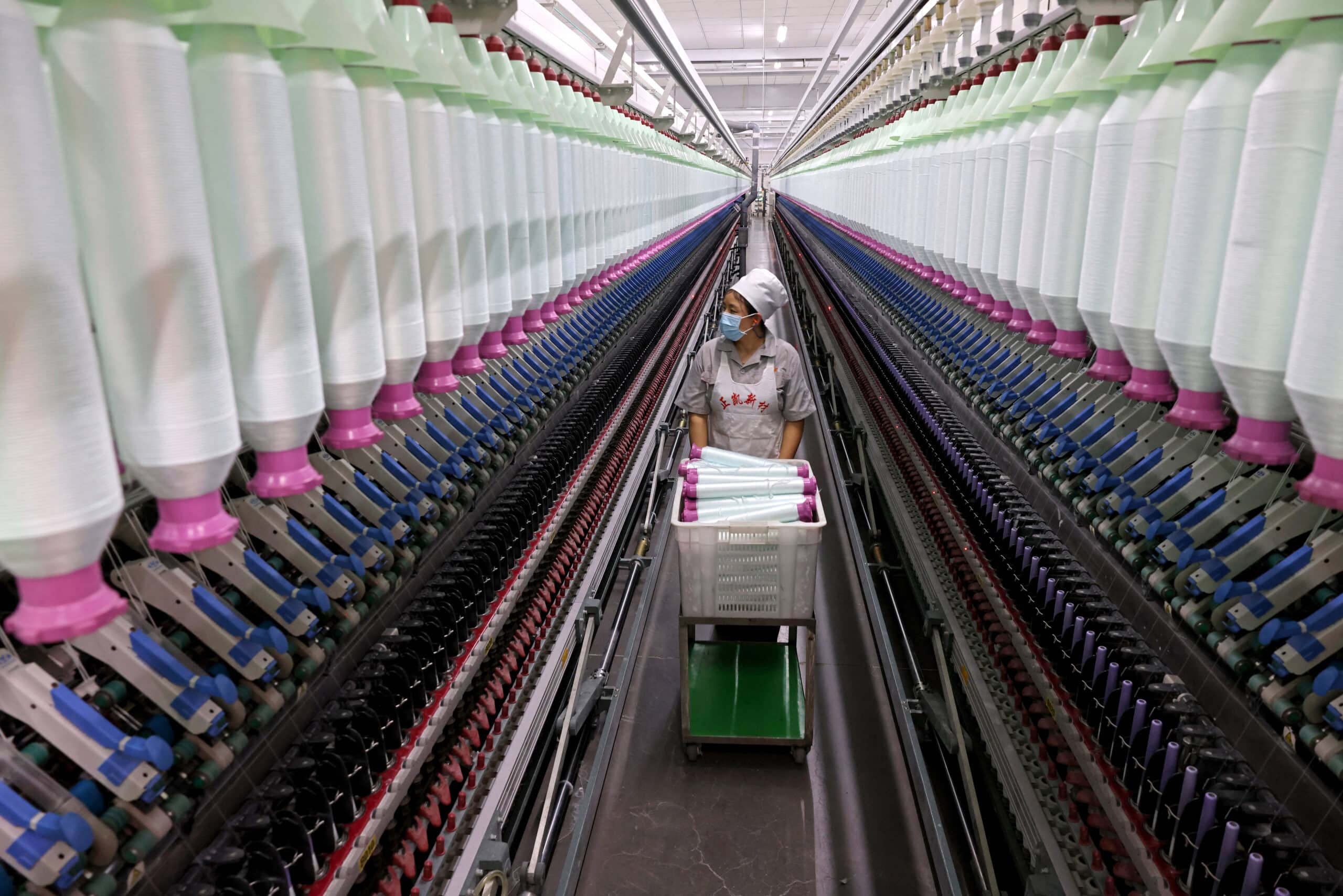
This photo taken on December 15, 2024 shows a worker checking on a production line of high-end threads in a factory in Zaozhuang, eastern China’s Shandong province. – China’s retail sales growth weakened last month, official data showed on December 16, missing forecasts as demand remains muted in the world’s number two economy. (Photo by AFP) / China OUT
Beijing, China — China’s retail sales growth weakened last month, official data showed on Monday, missing forecasts as demand remains muted in the world’s number two economy.
The country is battling sluggish domestic consumption, a persistent crisis in the property sector and soaring government debt — all of which threaten Beijing’s official growth target for this year.
Retail sales expanded three percent year-on-year in November, the National Bureau of Statistics (NBS) said, slowing from a 4.8 percent rise in October that was its best reading in eight months.
READ: Asian markets struggle after more weak China data
The figure fell significantly short of the five percent forecast in a Bloomberg survey of analysts.
Ting Lu, chief China economist at Nomura, a Japanese bank, said the figures showed “domestic demand was weaker than expected”.
Economic activity was “a bit disappointing” overall, he said, adding that Beijing may need to take even bolder action as the country was “not in a typical downcycle”.
The NBS also said the national urban unemployment rate remained unchanged at five percent in November.
Industrial production growth stayed broadly flat at 5.4 percent compared with 5.3 percent in October.
Beijing has unveiled a string of aggressive measures in recent months aimed at bolstering growth, including cutting interest rates, cancelling restrictions on homebuying and easing the debt burden on local governments.
But economists have warned that more direct fiscal stimulus aimed at shoring up domestic consumption is needed to restore full health in China’s economy, which has struggled to fully recover since the Covid-19 pandemic.
Beijing is pushing for an official national growth target this year of around five percent, a goal officials have expressed confidence in achieving but which many economists believe it will narrowly miss.
The International Monetary Fund expects China’s economy to grow by 4.8 percent this year and 4.5 percent next year.
An NBS spokesperson said they expected that “the main targets for economic and social development (will) be successfully achieved”.
But they added that the international environment would likely become “more complex, harsh and uncertain” next year, adding that “trade protectionism will drag down global trade and the recovery of the world economy”.